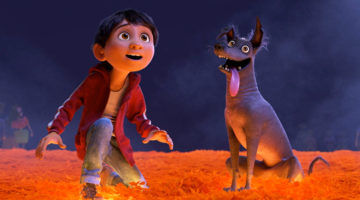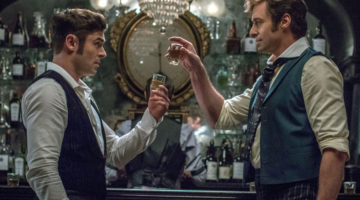Movie Review: Killer Joe
The Matthew McConaughey renaissance continues with yet another character this year that when seen on screen, you can’t really take your eyes off him—and in this case, you can’t catch your breath either. His latest role is the titular crooked cop in Killer Joe, a taut Texas-noir about an icy-eyed murderer for hire employed by a dysfunctional family of misfits.
His soft-spoken and unpredictable police officer Joe Cooper follows McConaughey for a year in which he has played a wild and gregarious strip club emcee (Magic Mike), a mysterious southern journalist in the 60’s (The Paper Boy, premiered in Cannes), and an enigmatic and brotherly felon (Mud, also a Cannes premiere).
He continues this stellar stretch with a role created in 1993 by a play by Tracy Letts, now adapted to the big screen nearly two decades later by William Friedkin of The Exorcist fame. Cooper is called into the service of a dysfunctional family, hired by young Chris Smith, with his father Ansel and stepmother Sharla, to kill his mother, collect her life insurance, and pay back a very angry and polite businessman named Digger.
McConaughey is eerily brilliant; Cooper moves with such maniacal calm, forcing you to barely brink or breath despite wanting to look away. It is in part due to Cooper’s poise and intellect, which may not be much, but compared to the Smith, he’s a mensa member.
Our introduction to the trio is beautifully and disgustingly played out (those two adjectives go together with everyone and everything in the movie). Locked outside his family’s trailer in the mud and rain, while a ferocious chained dog ominously barks, Chris is finally let inside, greeting by his step mother, or more appropriately, by her, let’s say, untamed womanhood that would normally otherwise be covered by underwear and a pair of pants.
Sharla doesn’t care to be sure, but Ansel cares far less; about everything. About his wife’s exposure and his son’s problem with that, yes, about their arguments particularly, and about anything that’s a hassle especially. He isn’t necessarily dumb or lazy; he is simply just smart and active enough to appease the people in his life without ever really taking responsibility.
And then there is Dottie, Ansel’s daughter and Chris’ younger sister, a paragon of chastity and earnestness. She gets thrown into the mix when Chris can’t pay Cooper up front, and as a fear of his impending doom looms, so grows his jealousy towards Joe, a smooth operator prying away from Chris a younger sister that evokes from him some confusing emotions.
Coopers moves in though, literally and figuratively, and his first dinner with Dottie is fraught with tension, while his charms may disarm the young virgin, horror seems to hang on his every syllable.
It is a terribly slow burn, a pot of boiling water, not one that you’re instantly thrown in to, but a comfortable soak that casually heats up without you knowing—until it’s too late. That is one analogy for the utterly captivating yet repulsive tale. Another would be a couple of choice acts performed by Cooper on his poor, pathetic victims. As they stand judgment, guilty of action and inaction, we pay a price as witnesses.
Somehow it is funny, hysterically so. The incompetence of the Smith men, the domineering attitude of Sharla, and the controlled, matter-of-fact oratory of Mr. Cooper, are tragically comedic. When Chris meets up with Digger, they chat and catch up on family gossip and news before Chris gets set upon; creepy and funny.
One or two scenes towards the end of the film (it flies by) may linger immediately after the credits start to roll and for some time after, but a quintet of captivating performances led by McConaughey make this something special and one worth watching again–if you can stomach it.
[star v=4]





